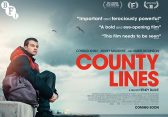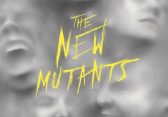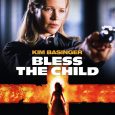End Of Watch follows two young officers, Brian Taylor (Jake Gyllenhaal) and Mike Zavala (Michael Peña) in Los Angeles as they carry out their daily patrols. Filmed predominantly through a handheld camera controlled by Taylor, the film gives a first hand view of the dangerous life lived by the police. During a routine traffic stop, the two men uncover much more than they bargained for, and their lives are jeopardized when they are marked for death by the leader of a drug cartel.
Director David Ayer is no stranger to gritty police dramas. His previous work includes the excellent and Oscar winning Training Day starring Denzel Washington, and the lesser known but equally brutal Harsh Times with Christian Bale. Using industry-standard cameras to film, he successfully captured a sense of reality on the streets of LA whilst also creating memorable characters. In his decision to shoot his latest work in the familiar yet unconventional ‘handheld’ way, Ayers has ironically removed some of the realism, especially in the street scenes. It’s an issue that’s present with a lot of films that are shot this way: it feels contrived and forced. It’s not always bad though – one particular standout scene involving a rescue from a burning building is fantastic, and the tension is alleviated due to seeing things from Taylor’s point of view.
It’s not just houses on fire and routine traffic stops that we see though: every aspect of these two men’s lives are captured, so it’s important that they’re entertaining to watch. Fortunately, the chemistry between Gyllenhaal and Peña is undeniably strong: you’d think that these two were best buddies in the real world. Their conversations whilst cruising the streets in the patrol car can be compared to those seen in Pulp Fiction, between Vince and Jules, in that for the most part it’s just mundane topics, but their wit and delivery make them memorable. Surprisingly, End Of Watch has comedic moments, whether that be from the banter between officers or the pranks pulled on their workmates. It’s a sharp but necessary contrast to the scenes involving dead bodies and injuries, showing that a sense of humour is needed if you’re going to work for LA’s finest.
Unfortunately, Taylor and Zavala are the only two characters of note – everyone else is a by the book stereotype, especially the Cartel members. There’s one that says the word ‘f*ck’ after every other word. At first, it’s comical, but it quickly becomes irritating and wholly unneeded. And then there’s the head of the Cartel, who’s never seen but only heard in a recorded conversation, ordering the hit on the two officers. After that, he’s never heard of again: and that’s one part of the main issue of End Of Watch.
Nothing in terms of an overall narrative happens for at least forty five minutes, and even then it’s only really touched upon, then forgotten until the final fifteen. Everything in between focuses on Taylor and Zavala’s friendship and their relationships with women. There’s no issues with that, because it is watchable, but the finale seems tacked on, rushed and unsatisfying when there hasn’t really been a worthwhile build up to it. As previously mentioned, the head of the Cartel is never mentioned again after placing the hit, leaving one of many unanswered questions when the credits roll.
To a newcomer of gritty Police dramas, End Of Watch is a great starting point. But to a hardened veteran of the genre, it may seem a little tame: it doesn’t surpass the realism or memorability of Ayer’s previous work, but it has its moments to make it stand alongside them. Pena and Gyllenhaal give it their all, but their performances may appear greater than they are due to the lacklustre performances of everyone else around them. Nevertheless, the chemistry between the two is palpable and these two alone make End Of Watch worth a watch.

























